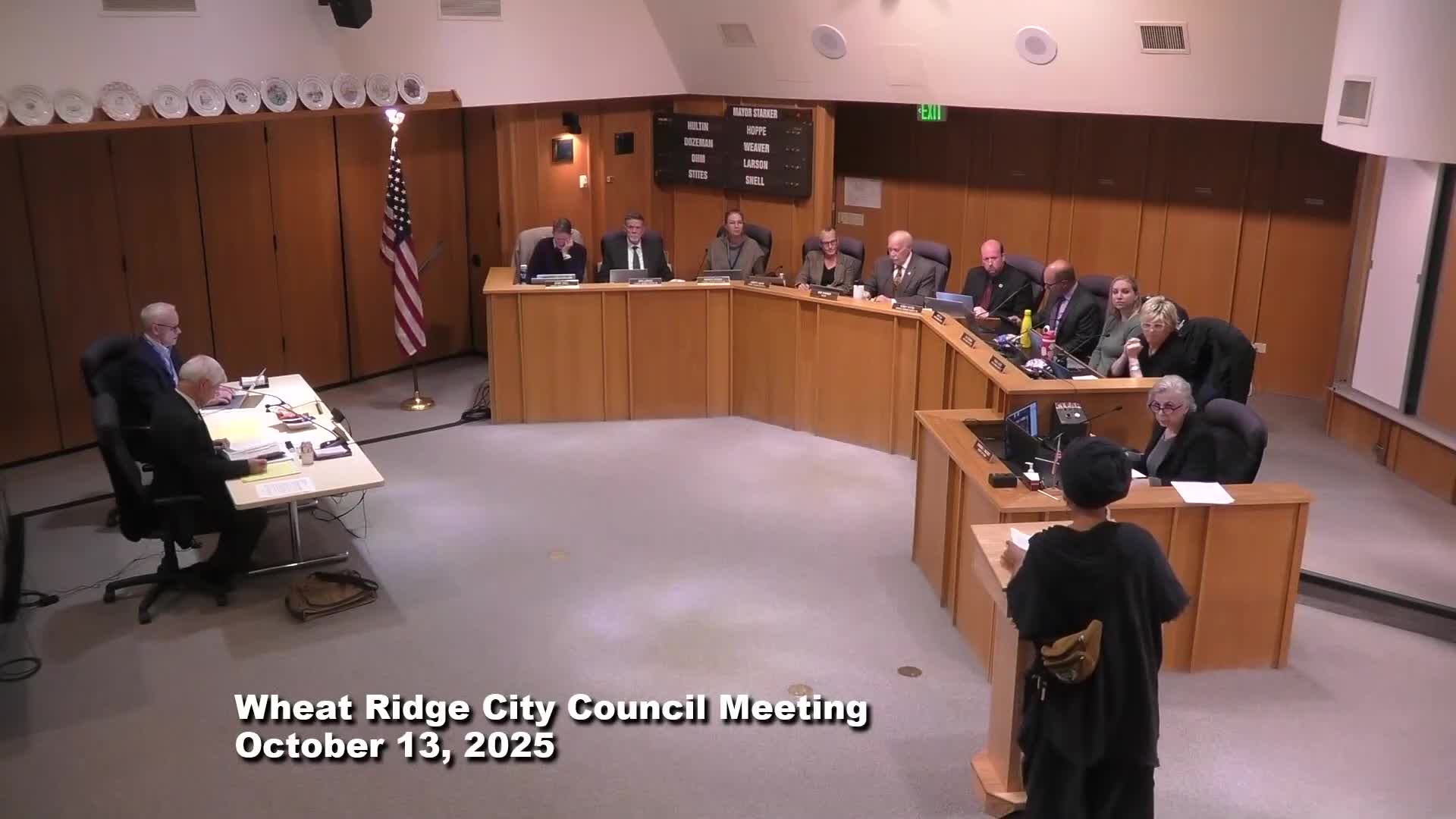Residents, advocates accuse City of Wheat Ridge of breaking promises to indigenous food project at Happiness Gardens
Get AI-powered insights, summaries, and transcripts
Subscribe
Summary
Anemone Salome, a community organizer with the Jefferson County Food Policy Council, told the City of Wheat Ridge City Council on Oct. 13 that they and other volunteers were effectively forced out of a community food project after the city failed to finalize a written agreement.
Anemone Salome, a community organizer with the Jefferson County Food Policy Council, told the City of Wheat Ridge City Council on Oct. 13 that they and other volunteers were effectively forced out of a community food project after the city failed to finalize a written agreement.
"I was effectively forced to flee the city after receiving ongoing racially charged death threats directed at me and my business," Salome said. "When I reported them, Wheat Ridge police and detective Rayna Johnson dismissed them as too vague to act on." Salome identified the business as Perma Tierra and said she had to leave the city for safety.
The central complaint from speakers was that the city allowed Nerissa Rivera to steward land at Happiness Gardens for two growing seasons with an oral promise of a five‑year agreement, but then did not put that agreement in writing. Several speakers said that city staff later added conditions that required Rivera to reconcile with individuals who had been hostile to her, which speakers described as coercive.
"Nerissa and the community members have invested thousands of dollars and countless hours improving the land," nature guide Shana Bridal said. "With good faith, she trusted that the city's promise of partnership, but that trust was broken." Bridal called for the city to honor the original agreement in writing if Rivera wishes, to ensure oversight does not become abusive, and to adopt policies protecting indigenous‑led land access projects.
Other speakers at the council meeting echoed those calls. Miranda Dominguez, a local farmer, said the project restored native agricultural knowledge and that the city’s failure to finalize a contract amounted to violence against indigenous people’s stewardship. Online speaker Alexis Zelanis told the council the city had not formalized the contract after two growing seasons and about $20,000 in volunteer and community investments on the site.
Councilmembers acknowledged the seriousness of the comments and said they would pursue further dialogue. Councilmember Jenny Snell, the council liaison for the city’s IDEA (inclusion, diversity, equity, accessibility) committee, said the committee will continue work on the land‑acknowledgment action plan and invited community members to participate. Councilmember (firstname) Jotim (spelled as pronounced in the transcript) said they and Snell will accept the Jefferson County Food Policy Council’s offer of a facilitated dialogue.
The city posted a public statement about the matter shortly before the meeting; speakers described that post as inadequate and urged a formal investigation and accountability for city staff conduct. Several speakers called for written contracts and for the city to adopt a policy framework to protect indigenous‑led land access and food sovereignty projects.
Councilmembers did not take a formal vote on the matter during the Oct. 13 meeting. Instead, multiple members expressed willingness to meet with community leaders and to pursue follow‑up conversations in smaller venues to allow more detailed discussion.
Speakers also tied the issue to broader concerns about equity and historical patterns of broken agreements with indigenous communities, and several urged the city to pair any administrative follow‑up with anti‑bias training and clear written commitments.
Members of the public who spoke identified the project as being led by Nerissa Rivera and located at Happiness Gardens; numerous speakers asked the city to honor previously stated commitments and to document terms in writing. Several community members emphasized the project’s reported benefits for food sovereignty, drought‑tolerant crops and youth education.
Councilmembers said they would pursue continued dialogue and follow‑up with staff about next steps; specific remedies or a timeline for action were not announced during the meeting.
